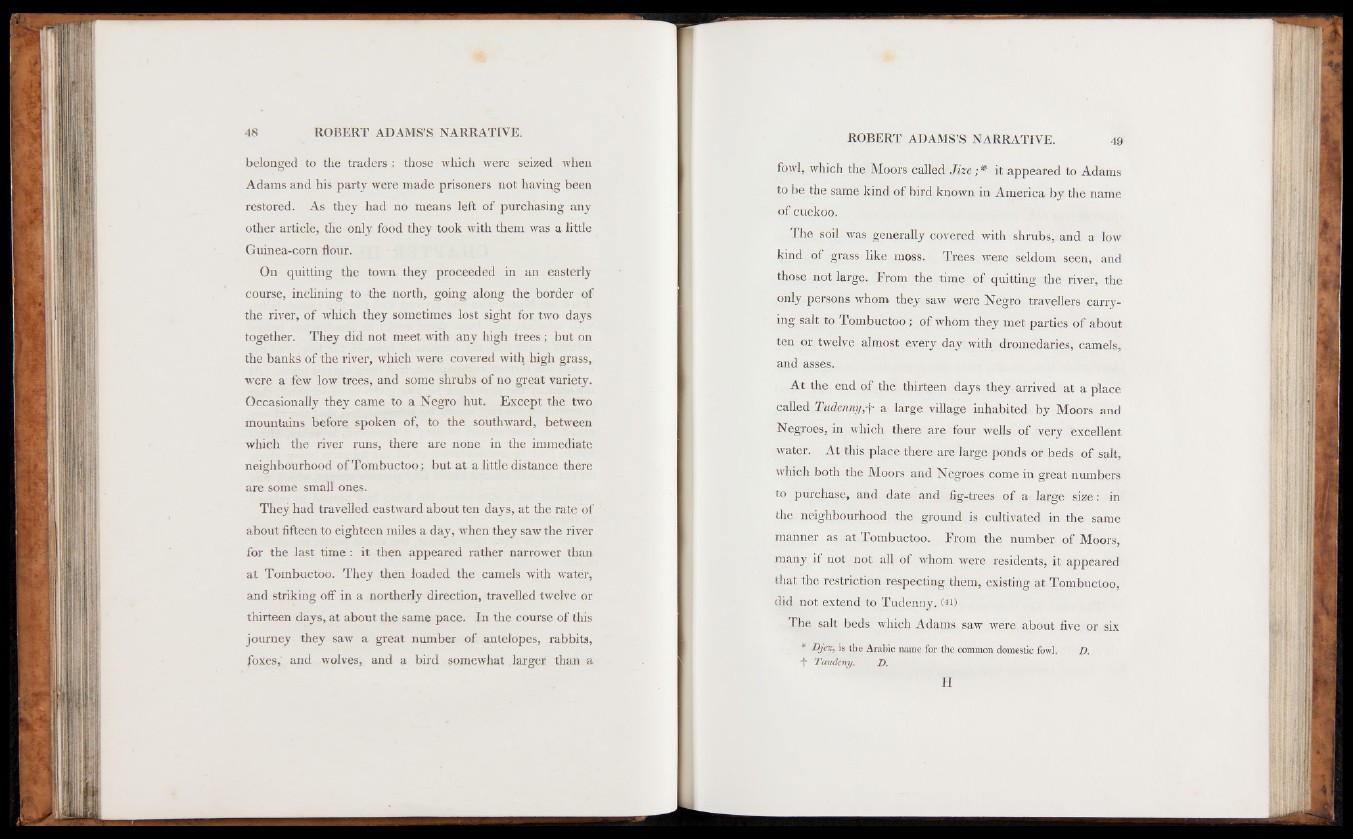
belonged to the traders; those which were seized when
Adams and his party were made prisoners not having been
restored. As they had no means left of purchasing any
other article, the only food they took with them was a little
Guinea-corn flour.
On quitting the town they proceeded in an easterly
course, inclining to the north, going along the border of
the river, of which they sometimes lost sight for two days
together. They did not meet with any high trees; but on
the banks of the river, which were covered with high grass,
were a few low trees, and some shrubs of no great variety.
Occasionally they came to a Negro hut. Except the two
mountains before spoken of, to the southward, between
which the river runs, there are none in the immediate
neighbourhood ofTombuctoo; but at a little distance there
are some small ones.
They had travelled eastward about ten days, at the rate of
about fifteen to eighteen miles a day, when they saw the river
for the last time: it then appeared rather narrower than
at Tombuctoo. They then loaded the camels with water,
and striking off in a northerly direction, travelled twelve or
thirteen days, at about the same pace. In the course of this
journey they saw a great number of antelopes, rabbits,
foxes,' and wolves, and a bird somewhat larger than a
fowl, which the Moors called Jize ;* it appeared to Adams
to be the same kind of bird known in America by the name
of cuckoo.
The soil was generally covered with shrubs, and a low
kind of grass like moss. Trees were seldom seen, and
those not large. From the time of quitting the river, the
only persons whom they saw were Negro travellers carrying
salt to Tombuctoo; of whom they met parties of about
ten or twelve almost every day with dromedaries, camels,
and asses.
At the end of the thirteen days they arrived at a place
called Tudenny, f a large village inhabited by Moors and
Negroes, in which there are four wells of very excellent
water. At this place there are large ponds or beds of salt,
which both the Moors and Negroes come in great numbers
to purchase, and date and fig-trees of a large size: in
the neighbourhood the ground is cultivated in the same
manner as at Tombuctoo. From the number of Moors,
many if not not all of whom were residents, it appeared
that the restriction respecting them, existing at Tombuctoo,
did not extend to Tudenny. («.)
The salt beds which Adams saw were about five or six
* m ezi is the Arabic name for the common domestic fowl. D.
Tauckny. /).
H